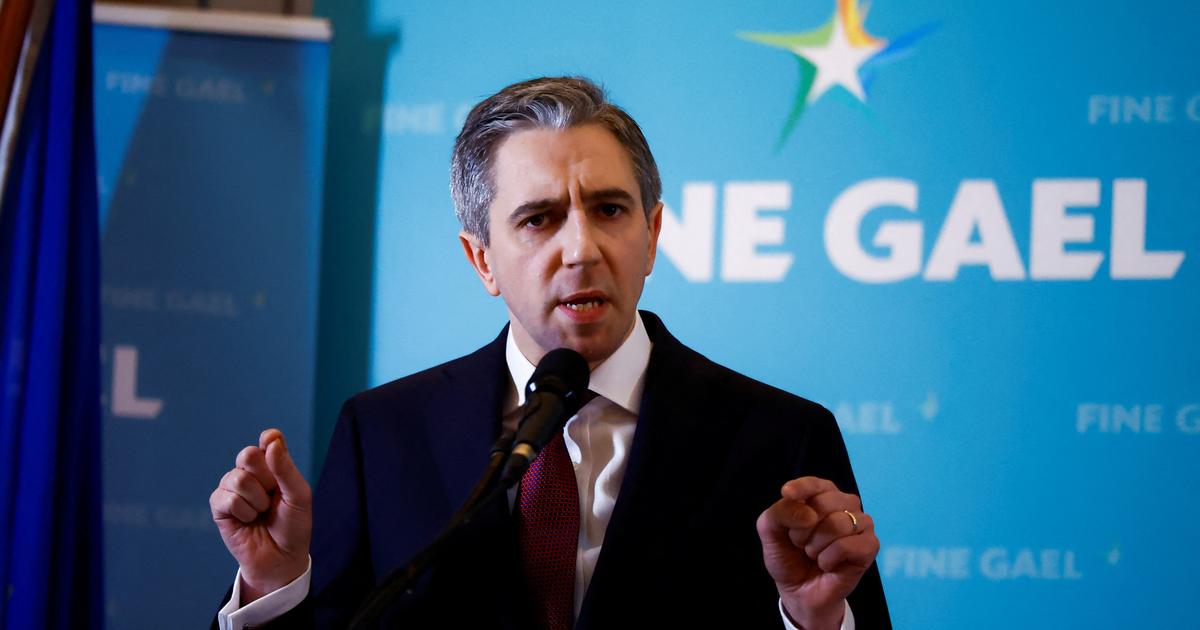Enlarge image
British Prime Minister Johnson: Trust lost
Photo: Yui Mok / dpa
After years of struggling for Brexit, after countless announcements, promises, changes of course and volts by the British government, the negotiators in Brussels actually thought they had seen it all.
But now the British have come up with something new again: They want to renegotiate without saying that they want to renegotiate.
London insists that they do not want to unravel the Northern Ireland Protocol - but at the same time they are demanding massive changes to the treaty and threatening to unilaterally terminate it if necessary.
The EU, however, strictly rejects renegotiations.
The post-Brexit relationship between the EU and Great Britain is threatened with serious damage even before it has really started.
The Northern Ireland Protocol aims to ensure that there is no new hard border on the island of Ireland that would endanger the fragile peace in the former civil war country.
At the same time, it aims to protect the EU's internal market from uncontrolled imports from the UK by practically moving the customs border to the Irish Sea.
"It can not go on like this"
However, at least that is how the British government sees it, it does not work.
"It cannot go on as before," said British Brexit representative David Frost on Wednesday.
On Thursday, British Prime Minister Boris Johnson picked up the phone in person and spoke to Commissioner Ursula von der Leyen and then to Chancellor Angela Merkel.
His success was apparently limited: "We will not renegotiate," tweeted von der Leyen after the conversation.
It is true that one will continue to be »creative and flexible« - but only »within the framework of the protocol«.
Johnson apparently wants to leave this, as he explained by von der Leyen and then Merkel.
The current implementation of the protocol is "untenable," said Johnson, according to a British government spokeswoman.
Solutions could "not be found with the existing mechanisms of the protocol".
There was no official statement from the federal government on the phone call, but from Berlin government circles it was heard that Merkel had not represented a position that was significantly different from von der Leyen.
In other words, your answer was no.
Because what Johnson is asking would amount to extensive renegotiation of the Northern Ireland Protocol - "and nobody in Brussels and the other capitals wants that," as an EU diplomat put it.
There are two main reasons for this.
The first is the sheer volume of British demands.
You want, among other things
End all customs controls on imports from the UK to Northern Ireland and replace them with company supply chain audits
new penalties for traders who don't follow the rules,
Remove the responsibility for the enforcement of the Northern Ireland Protocol from the EU institutions and in particular the European Court of Justice (ECJ).
From the EU's point of view, these demands should not only be out of the question in terms of content.
Fulfilling it would also go beyond the mandate that the member states have given the EU Commission.
All 27 EU states would have to renegotiate and unanimously agree on a new one at a summit - although it has only been six months since Johnson celebrated the adoption of the current Northern Ireland Protocol as a great victory.
Threat of the "nuclear option"
The second reason for the EU's negative stance: It has not trusted Johnson for a long time.
The British negotiators assert that the Northern Ireland Protocol would really work in the long term if the EU only met the few demands made by the British government.
But such promises have often been heard from Johnson. In Brussels there has been suspicion, not only since this week, that the British government does not want to improve the Northern Ireland Protocol, but torpedo it - by piercing it more and more. From Brussels' point of view, this is supported by the fact that London has not yet implemented large parts of the contract. "When that's done, maybe we can talk about major changes," says a diplomat. "Not previously."
In addition, the British government immediately flanked its demands with threats of unilateral action. Brexit representative Frost, for example, described Article 16 of the Protocol as a “legitimate tool”, even if it is not yet to be used. The passage allows both sides to take unilateral countermeasures should the contract lead to serious economic, ecological or social disturbances. It is also called the "nuclear option" in the British media.
It wouldn't be the first time the UK government has acted on its own - or at least tried to. Last week, for example, she announced to the EU that she would pay three billion pounds less for services from the time she was a member of the EU than planned. In March, London had already extended a transitional phase for food deliveries to Northern Ireland without authorization. The EU Commission reacted with infringement proceedings that could ultimately lead to a lawsuit before the ECJ.
If London were to trigger Article 16, the Commission could, in turn, take countermeasures, such as punitive tariffs on British imports.
Such an escalation is unlikely to happen immediately, since the summer break is pending.
By September at the latest, however, the conflict threatens to get hotter again, among other things because the end of the transition period that London has arbitrarily extended is approaching.
After all, after the phone call between Johnson and von der Leyen, the British government also announced some good news: "They have agreed to keep in touch."







